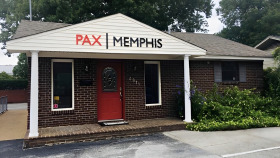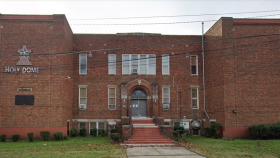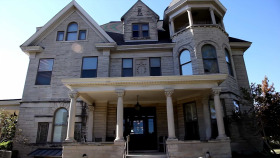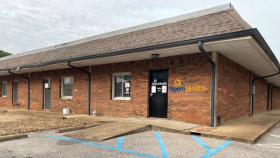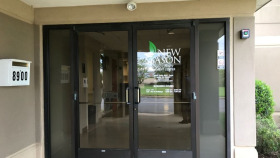How Expensive is Drug Rehab in Memphis?
The cost of going to alcohol or drug rehab in Memphis can vary widely based on several factors, including:
Setting (inpatient or outpatient)
Type of rehab (luxury or standard facility)
Length of program (short term vs. long term)
Plan specifics (whether you need detox, medication-assisted treatment, dual diagnosis care, or other specialized services)
Whether the facility receives government funding or donations
Fortunately, you have several options to pay for addiction treatment. Many accredited Memphis drug rehabs may also be willing to work with you on payment based on your financial situation.
Low-Cost and Free Drug Rehab Centers in Memphis
If you cannot afford to pay, you may be eligible for low-cost or free care at a state-funded facility. These facilities receive funding from the government, which allows them to provide reduced-cost and free options for people in need.
State-funded Memphis drug rehabs are a public health service, which means their services are available to any Tennessee resident. However, to qualify for treatment at one of these facilities, you’ll likely be asked to prove that:
- You are a legal resident of the United States.
- You are a resident of Tennessee.
- You do not have adequate income to pay.
- You do not have insurance.
- You have a history of substance abuse.
If you need help finding the best facility or detox center in Memphis for you, contact our helpline to get the help you need, today.
How Does Memphis Compare in Alcohol and Drug Use?
Located in southwest Tennessee on the Mississippi River, Memphis is famous for several music landmarks such as the Rock ‘n’ Soul Museum, Blues Hall of Fame, and Stax Museum of American Soul Music. However, the opioid epidemic has continued to progress there.
In 2020, there were 416 suspected overdose deaths and 1,993 opioid-related emergency department visits in Shelby County. If you or a loved one is struggling with addiction, there is help available.
There are more than 35 accredited alcohol and drug rehab centers in Memphis and the surrounding area.
Memphis is located in Shelby County, Tennessee, where alcohol and drug use have long been serious concerns for the community. Noteworthy statistics for the Memphis area include:

In the first quarter of 2021, Memphis experienced nearly 500 opioid-related emergency department visits.

In the same timeframe, there were nearly 650 suspected opioid overdoses in the greater Memphis area.

In the first three months of 2021, Shelby County, where Memphis is located, saw 117 opioid overdose deaths.

In 2016, roughly 51% of people admitted to state-funded addiction treatment centers identified alcohol as a substance of misuse.
Alcohol and Drug Laws in Memphis
Tennessee Addiction Treatment Act of 2015: Under Senate Bill 871, anyone who calls for emergency medical assistance during a suspected overdose cannot be arrested, charged, or prosecuted for a drug violation. However, this law only applies if the evidence for such a violation was obtained as a result of a good faith 911 call.
Calling for emergency medical assistance in the event of an overdose could save a life. If you’re ever involved in this type of situation, do not hesitate to seek help. This law protects you from legal consequences.
Tennessee Good Samaritan Naloxone Administration Law: This law grants immunity from civil suits to providers who prescribe naloxone (Narcan) to a person who can assist in administering the medication during an overdose. This legislation also allows the Department of Health to give instruction and training on proper naloxone use. Furthermore, the law grants civil immunity to people who administer the medication to someone who appears to be overdosing on an opioid.
Tennessee Addiction Treatment Marketing Laws: In 2018, Tennessee passed House Bill 2068, which makes deceptive treatment facility marketing practices illegal. This legislation makes it unlawful for facilities to deceptively redirect readers to other websites and requires that site coding, electronic links, and activation be transparent.
HB 2068 also stipulates that facilities cannot solicit, receive, or attempt to receive a financial kickback for patient referrals. This law makes it easier for prospective addiction treatment clients to make well-informed, unbiased decisions about the facilities they’d like to attend.
Resources
- Shelby County Health Department, Bureau of Epidemiology and Infectious Diseases. (2021). Provisional Opioid Report, Quarter 1 – 2021.
- Tennessee Department of Mental Health & Substance Abuse Services. (2017). 2017 Tennessee Behavioral Health County and Region Services Data Book.
- Substance Abuse and Mental Health Services Administration. (2020). 2019 National Survey on Drug Use and Health: Veteran Adults.
- National Institute on Drug Abuse. (2020). Sex and Gender Differences in Substance Use.
- Substance Abuse and Mental Health Services Administration. (2021). Treatment Consideration for Youth and Young Adults with Serious Emotional Disturbances and Serious Mental Illnesses and Co-occurring Substance Use.




